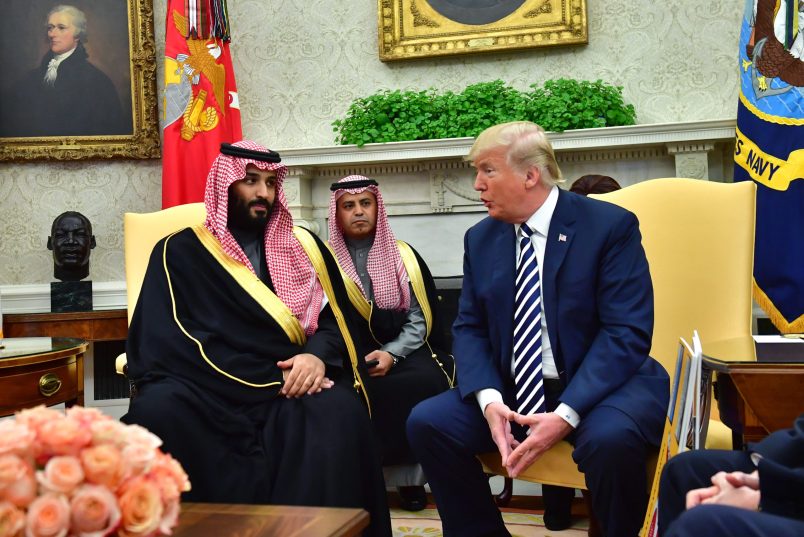One thing we’re already starting to see is that the current COVID-19 pandemic is only one part of, though clearly the biggest and driving part of, an unfolding global crisis. The economic knock-on effects are now ramifying across the globe in ways that will not only complicate the disease response but create new realities and crises that have a life of their own.
You can see today’s dramatic drop-offs in equities markets around the globe. The Dow Jones Industrial Average and the the S&P 500 are both currently off more than 6% since markets opened in the US this morning. Part of the immediate trigger is what can only be called a collapse in oil prices which began late yesterday US time.
The key point I want to emphasize here is that that began when Saudi Arabia launched what amounts to an aggressive price war with Russia. Russia wouldn’t agree to production caps to stem the drop of the price of oil. Saudi Arabia responded by dramatically cutting prices. It has some dimensions of a game of chicken. The bigger picture is that all countries with heavy reliance on oil exports were struggling to contain the economic impact of the crisis. Unable to operate jointly to do so, they’re now moving into an every man for himself mode, thus accelerating the overall decline and chaos.
Historically, Saudi Arabia has always been the country that has the biggest margins and biggest supply elasticity. They almost always have the ability to pump a lot more than they’re currently pumping. So in the context of a price collapse the Saudis have more ability to just pump more oil and limit the impact on their overall revenues. Countries like Russia have much less flexibility on that front. There are many other countries heavily reliant on oil export revenues that will be hit hard by this. Just to pick an example closer to home: the oil turbulence triggered a dramatic drop in the value of the Mexican peso.
Note that a key accelerant here is the de facto ruler of Saudi Arabia, Mohamed bin Salman (usually called MBS), a man whose recklessness we’ve known in calmer times. In the two days leading up to yesterday’s events he had already arrested four key members of the royal family, including his uncle, the brother of his father the king and a cousin who was Crown Prince before MBS replaced him. All were charged with treason.
Whether this was a reaction to threats to his power amidst the current crisis or an effort to use the crisis to consolidate power isn’t clear to me and I don’t think anyone is quite sure yet. But again, big picture: the primary crisis is generating secondary crises with a life of their own. Here we have the primary health crises generating economic knock-on effects which have immediate and potential vast geopolitical repercussions.






